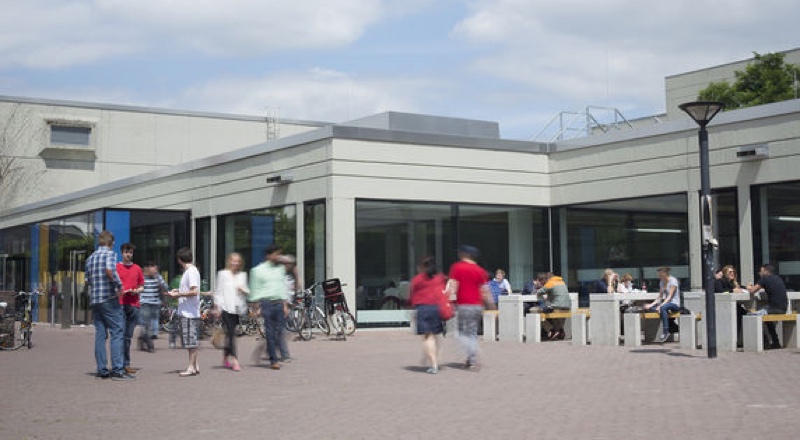Musicology
Bachelor of Arts (Minor subject)

Short description
Musicology at the Robert Schumann University of Applied Sciences Dusseldorf deals with the foundations, manifestations and modes of action of music and, in particular, conveys their understanding from the combination of contemporary artistic requirements with their conditions of origin and cultural context. The students should gain an overview of this and develop a musical understanding that explicitly takes into account the special interaction of all contemporary music presentations with different technical media due to changed communication requirements.
Combination options
For this study programme you need a major subject
| Art History |
| English and American Studies |
| German Languages and Literatures |
| Historical Studies |
| Japanese Studies |
| Jewish Studies |
| Philosophy |
| Romance Languages and Literatures |
Entry/Admission requirements
Admission requirement is the general or relevant Hochschulreife (high school graduation) or a qualification recognized as equivalent.
Programme content
How does a young man achieve a musical education around 1290 - and why not a young woman? Why are there so many genres of music? How is music intertwined with intellectual, social and political aspects? In what context did such revolutionary music emerge as Stravinsky's, Sacre du printemps' or Schoenberg's piano pieces? Why is avant-garde music so hard to hear and to understand? What is 'music' and how can I reasonably speak about it? If you have a lot of questions about music and its cultural environment, if you want to learn how to get to the bottom of these and similar questions with methods of scientific thinking and scientific working techniques, then musicology is the right choice.
Musicology at the Robert Schumann Hochschule deals with the theoretical foundations, the historical manifestations and the different modes of action of music. We do not understand music as something timeless and unbound, but we see it against the background of its conditions of creation and try to place it in a wider cultural and social context. Musicology sees itself as belonging to the humanities with multiple references to other disciplines (such as philosophy, social sciences, German studies, etc.).
Programme structure
The course is divided into six modules (plus one more in the Fachübegreifende Wahlpflichtbereich), which build on each other:
The basic module 1 deals with the methodological foundations of the subject (questions, approaches to the subject, selected scientific methods, how to analyze music and talk about it).
The basic modules 0, 2 and 3 are for instruction in music theory (keys, counterpoint rules, harmony, ear training, compositional techniques, morphology).
The advanced module 1 broadens the musicological knowledge in the direction of work, genre and historical topics (from the Middle Ages to today, from the string quartet to film music, individual composers and their work, etc.). The advanced module 2 deals with topics that include the social, aesthetic and cultural context of different types of music. By choosing one of the two specialization modules, one of the two subject areas of the advanced modules can then be worked on more intensively. Although musicology at the Robert Schumann Hochschule has a focus on music history with a clear emphasis on composed music, topics from Ethnomusicology are also offered.
Programme objectives/Career prospects
Graduates in the field of musicology offer career opportunities in the music and media industry as well as in cultural administration and science. They qualify for activities in media companies, music management, publishing and broadcasting, journalism, new media, associations, government agencies and other organizations. The music and media market, which is constantly changing due to a variety of influencing factors, has a high demand for professional communication producers, consultants and observers.
Winter semester
6 semesters
German
Open admission
16/07/2024 - 04/10/2024
15/01/2024 - 15/02/2024
Student Services Center (SSC)
Building: 21.02 / SSC
Phone +49 211 81‐12345
For questions regarding the course of studies and for examination issues:
Student and Examination Administration
Contact Examination Administration

